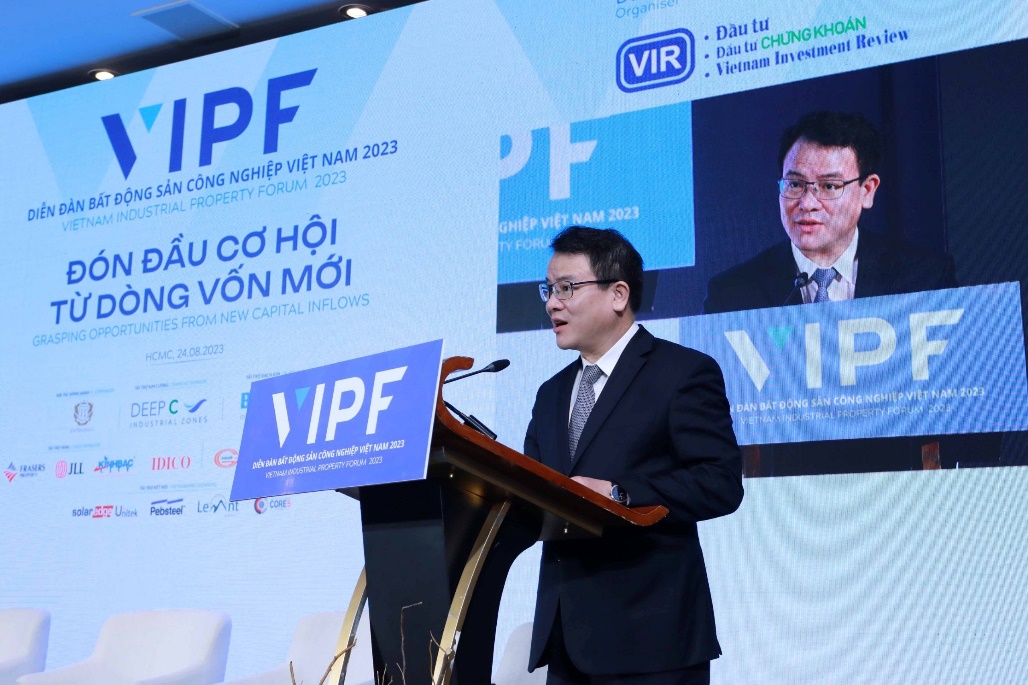(MPI) - Vietnam remains a bright spot in foreign direct investment (FDI) attraction amid complex, fast, and unpredictable developments of the world and regional situation.
 |
| Deputy Minister Tran Quoc Phuong addresses the event. Photo: MPI |
Deputy Minister of Planning and Investment Tran Quoc Phuong made the remarks while joining the Vietnam Industrial Property Forum 2023 themed “Grasping opportunities from new capital inflows” in Hanoi on August 24.
Speaking at the event, Deputy Minister Phuong said Vietnam remains a bright spot on the global map in term of FDI attraction with various advantages. The country continues to maintain macroeconomic stability, control inflation, achieve positive growth results and improve its business and investment environment despite turbulent context.
Last year saw the realised FDI capital of about 22.4 billion, which is the highest figure over the past five years. In the first seven months of 2023, the newly-registered FDI capital and new projects increased by 38.6% and 75.5% annually, respectively, showing foreign investors’ confidence in the country’s investment climate.
In addition, Vietnam’s position is elevated in the international arena thanks to its engagement in 17 signed free trade agreements (FTAs), including new-generation FTAs such as the Comprehensive and Progressive Agreement for Trans-Pacific Partnership (CPTPP), the Regional Comprehensive Economic Partnership (RCEP), and the EU-Vietnam Free Trade Agreement (EVFTA).
The country also ranked among 20 economies regarding trade scale while seeing foreign investment from 143 countries and territories with nearly 38 thousand projects worth more than 452 billion USD.
In order to improve FDI efficiency, the official suggested continue building policies to promote the development of industrial parks (IPs) and economic zones. Vietnam currently has 400 IPs with a total area of over 128 thousand hectares of natural land and 86 thousand hectares of industrial land.
IPs have been completed infrastructure and factories to reach international standards, and some localities pilot a number of industry clusters to form production and supply networks, allowing them to participate deeply in global value chains, he added.
To have further information on designing new policies regarding IPs development, deputy minister Phuong asked participants discuss views regarding special mechanisms of industrial real estate, investment trends in IPs, and solutions to improve IPs’ competitiveness in attracting foreign investment.
He outlined that the 2021-2030 national foreign investment cooperation strategy sets out a number of specific goals such as raising the proportion of registered foreign investment flows from certain countries and territories such as the Republic of Korea, Japan, Singapore, and France to over 70% in the 2021-2025 period and 75% in the 2026-2030 period.
It also targets to increase the number of multinational corporations in the list of 500 largest groups by 50% by 2030, and strives to rank among three leading countries in the ASEAN and 60 leading countries according to the World Bank’s Doing Business rankings./.
Bao Linh
Ministry of Planning and Investment